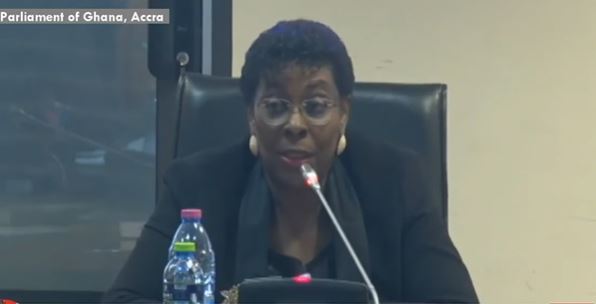adverts
In a recent vetting session on Tuesday, August 13, Supreme Court nominee Justice Sophia Essah made it clear that the roles of a lawyer and a judge are distinctly separate under the Constitution of Ghana.
According to Justice Essah, once a person assumes the position of a judge, they can no longer practice as a lawyer.
“You cannot be in this country as a lawyer and, at the same time, a judge. Because the work of a lawyer is different from that of a judge. I cannot go and be an advocate, have clients, or represent anyone in court. That is the work of a lawyer,” she explained. “And so once I became a judge, I could no longer be a lawyer, even though I have legal professional knowledge and background.”
adverts
Her comments came in response to a question from Mahama Ayariga, the National Democratic Congress MP for Bawku Central, who pointed out the constitutional requirements for becoming a Supreme Court judge.
He noted that the Constitution mandates a candidate to have at least 15 years of standing as a lawyer, along with high moral character and proven integrity.
Mr. Ayariga sought clarification on whether Justice Essah had indeed met the 15-year requirement stipulated by the Constitution.
In her response, Justice Essah stated that she interprets the constitutional provision differently from Mr. Ayariga. She affirmed her eligibility under the provision, emphasising her long-standing legal background and professional experience.
Justice Essah’s clarification underscores the constitutional separation of duties and qualifications for legal professionals in Ghana, reaffirming that once appointed as a judge, an individual transitions from the role of a practicing lawyer to that of a judicial officer, dedicated to upholding the law impartially.


